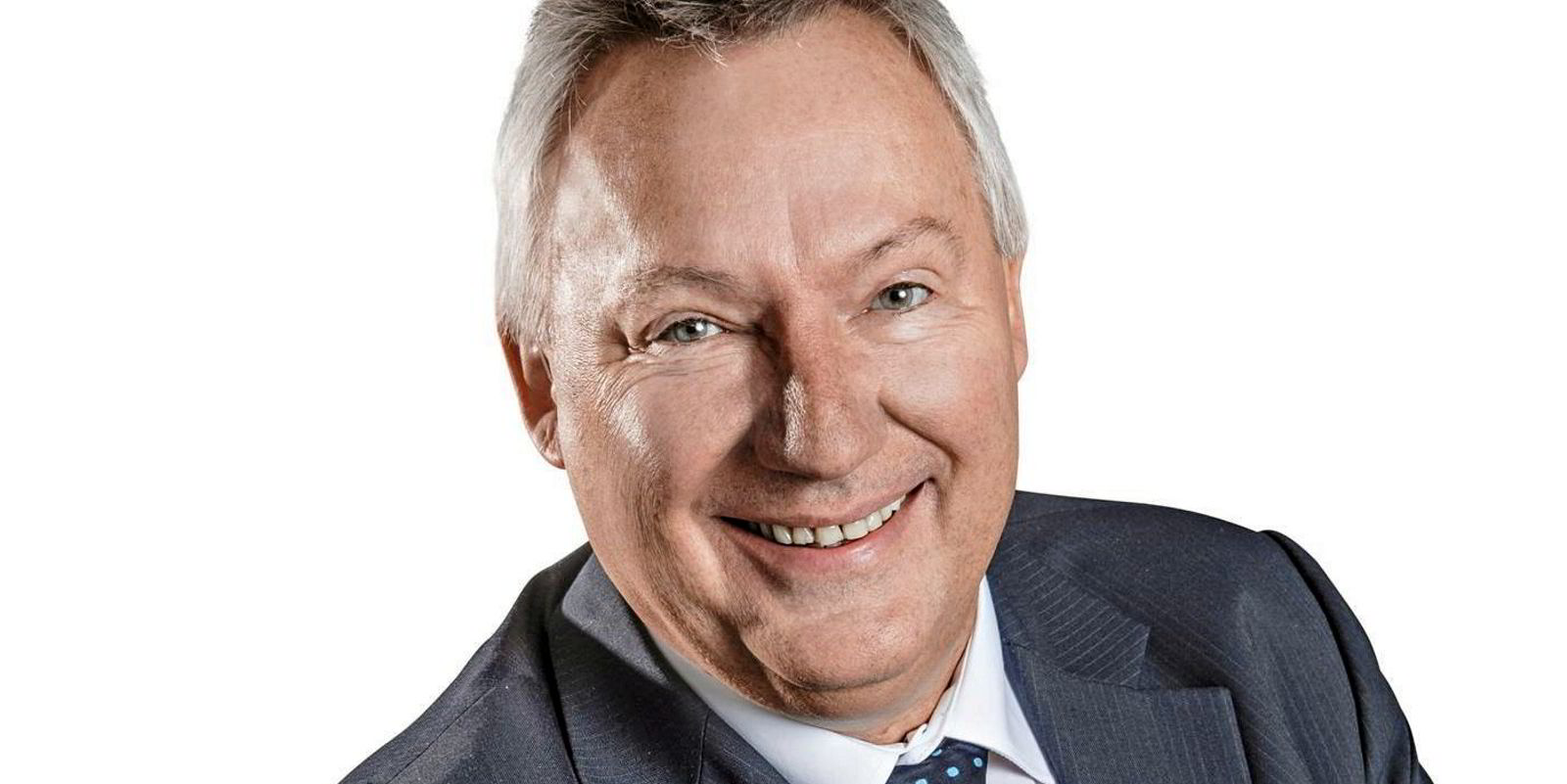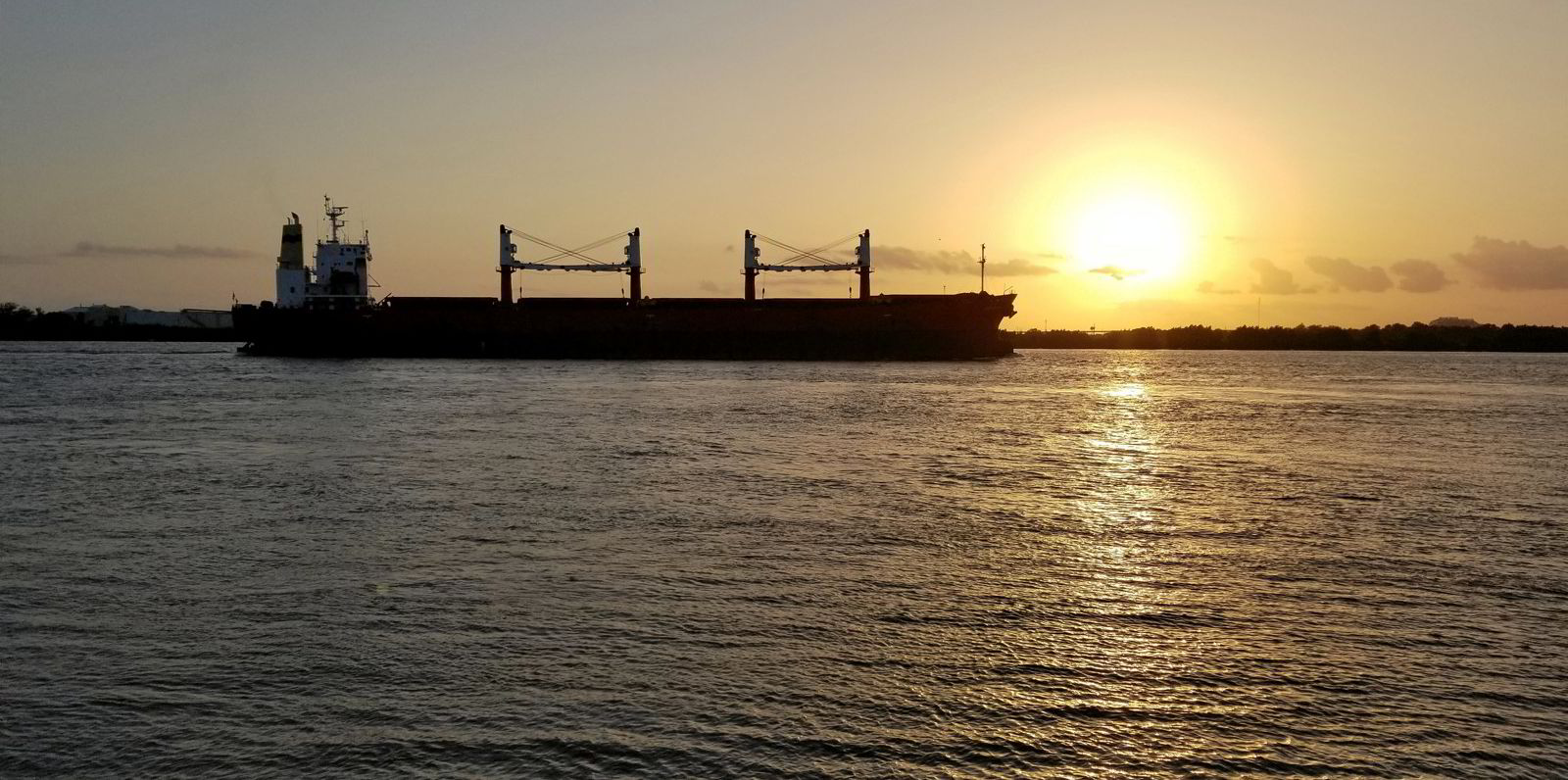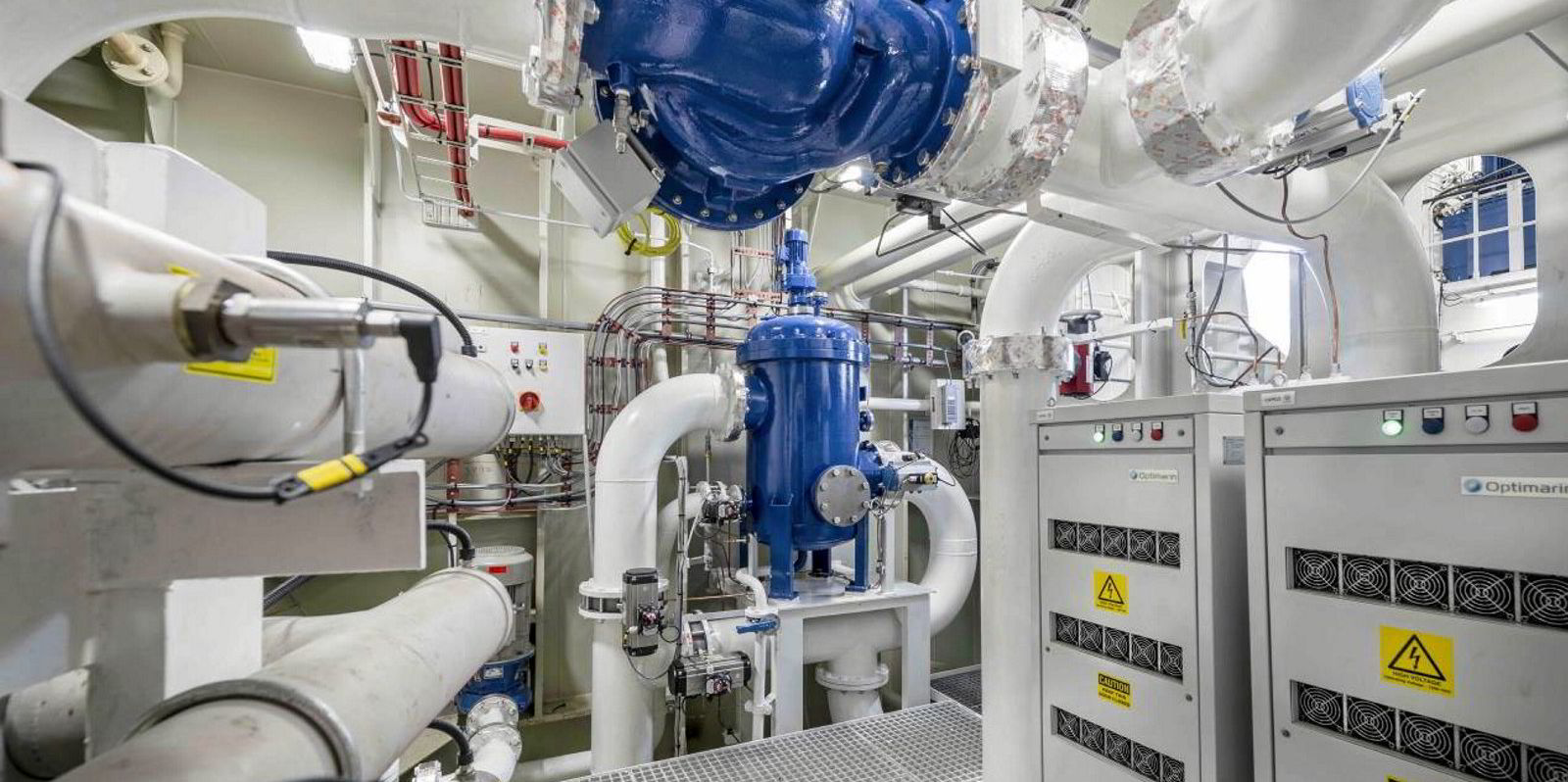Many shipowners are set to miss next year’s deadline to retrofit ballast water treatment systems and installations are likely to spill over into 2025, according to a leading system producer.
The phased schedule for the International Convention for the Control & Management of Ships’ Ballast Water and Sediments, known as the BWM Convention, ends in October 2024.
Optimarin executive vice president of sales & marketing Tore Andersen told a press briefing in London that the Norwegian company is aware many vessel operators will not hit the deadline for the convention, which aims to protect marine environments from invasive species.
He said Optimarin has sold 1,500 systems so far and expects it can sell 600 to 700 more by the end of the retrofit period.
“At the end of 2024, all the guys who have forgotten to install, or got extensions, there will be some circus,” he said as they rush to fit BWM systems.
“I think we will drag this retrofit baby somewhere into 2025 — six months later, maybe.”
Ship operators not trading to the US are among the most likely to be in this position, Andersen said.
“I can never understand it, because when we talk to the class, they say it is impossible to get an extension of more than six months, but some of the clients [already] say they have an extension to the end of 2024,” he said.
These companies were gambling, Andersen said, but to some extent had an excuse due to the difficulties of the past three years, from the Covid pandemic to the Ukraine war. Many owners were loath to take ships out of operation when they were earning high rates.
“What is sad is that we see a lot of retrofit of retrofits,” he added. “It is very costly for the companies that have to do it.”
Some competitor systems have to be replaced simply because they are very old, he claimed, having been installed early, around 2012, and possibly never approved. Others have failed after a lack of technical back-up.
Not every ship needs a BWM system. Smaller vessels and those trading in domestic coastal waters do not need them if they are not going to sail internationally.
About half the market is for ultraviolet (UV) light filtering BWM systems, of the kind Optimarin produces. The other half is for electrolysis systems, which it does not make.
UV filter systems, which treat water on intake and out-take, are generally fitted to smaller ships. Andersen said Optimarin is competitive up to about 30,000-dwt vessels. Larger ships are more likely to need electrolysis systems, which treat water only on intake and therefore allow quicker deballasting if required.
Newbuilding sales do not provide a big enough market for Optimarin after the retrofit period ends, he admitted, as only about 30% of the 500 vessels built each year in the category it serves require BWM systems for their trading patterns.
The company is establishing a manufacturing base in China to boost the availability of its ballast water system for the Asian shipbuilding market.
Andersen said it is pursuing partnerships with Chinese suppliers for high-quality production of components at reasonable cost and delivery price.
But as a single-product company, Optimarin would either have to look to buy other systems or merge with or acquire other companies, possibly in the wider areas of pollution treatment. However, the €40m ($42m)-a-year revenue company “will exist after 2024”.





